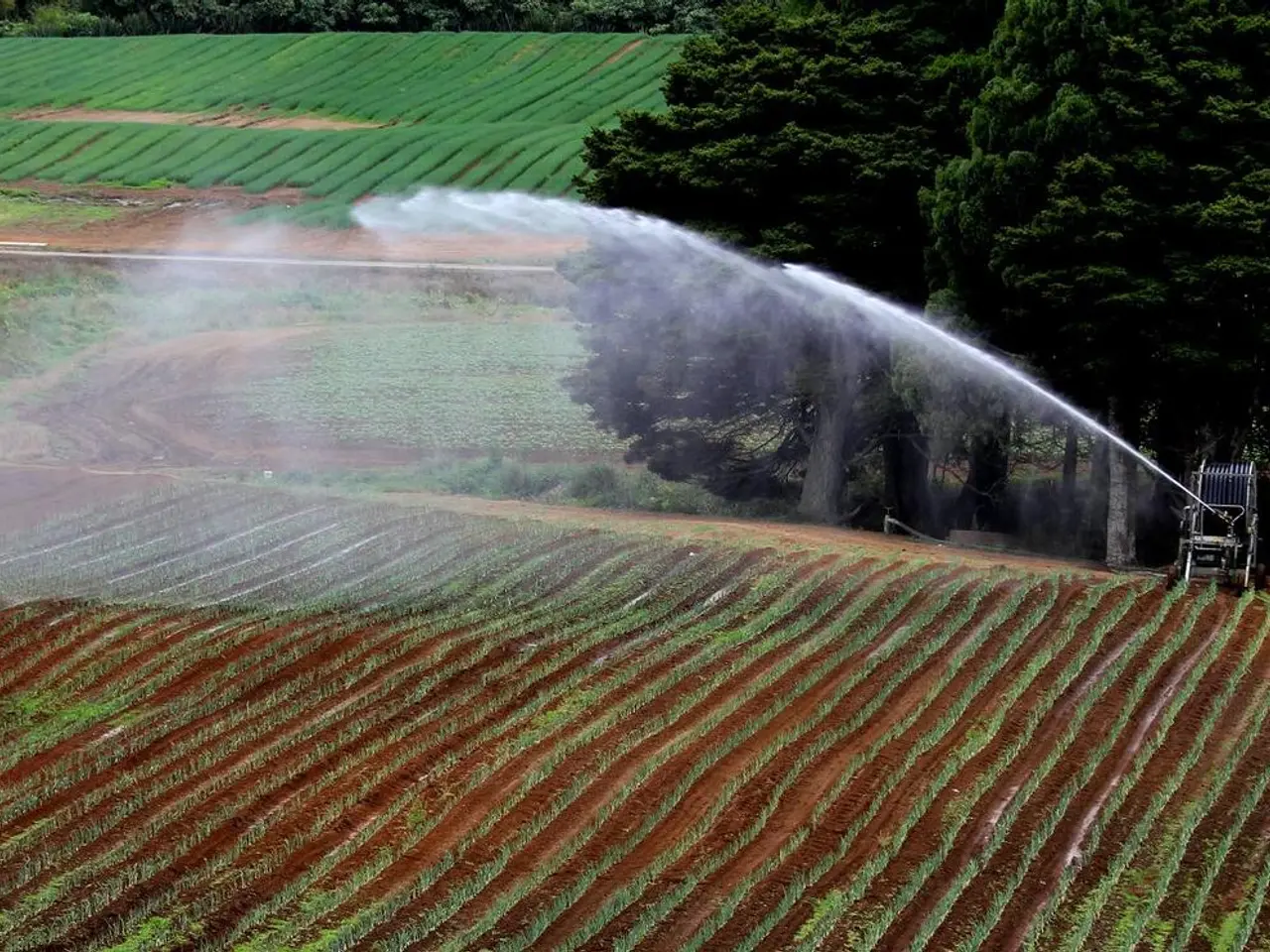Agriculture Struggles in Africa: Top 10 Obstacles Predicted for 2025
Africa's agricultural sector, a significant contributor to the continent's economy, faces several challenges that threaten its growth and potential.
One of the most pressing issues is the degradation of arable land. Approximately 65% of Africa's farmland is affected by nutrient depletion and erosion, a problem exacerbated by the fact that only 4% of agricultural land is equipped for irrigation. This degradation, coupled with inadequate storage, transportation, and processing facilities, results in up to 30% of food produced in Africa being lost.
Climate change is another major challenge. Africa's cereal yields average around 1.2 tonnes per hectare, significantly lower than the global average of 3 tonnes. Outbreaks of diseases such as the Tuta absoluta (tomato leaf miner) and ginger blight have caused significant losses in recent years.
In Nigeria, rising input costs have forced many farmers to use low-quality seeds, resulting in reduced yields. This was further compounded in 2024 when floods devastated approximately 700,000 hectares of farmland. The ginger blight disease alone led to a loss of approximately ₦12 billion in 2023.
Despite these challenges, there is hope. The projected import and export values for the African agricultural market in 2025 indicate a growing trend in trade. The import value is projected to amount to US$40.8 billion, with an annual growth rate of 2.85%. The export value, meanwhile, is projected to reach US$20.5 billion, growing at an annual rate of 2.35%.
These figures, along with the projected gross production value of $189.07 billion for the sector in 2025, suggest that agriculture in Africa has the potential to boost the economy significantly. By the end of 2029, the gross production value in the African agricultural market is projected to reach US$193.88 billion.
However, to achieve this potential, weak policy frameworks, inadequate investment in agriculture, and limited coordination among stakeholders must be addressed. Fortunately, there are partnerships in place to help. Germany, for instance, is a reliable partner supporting socially just green transformation and international climate financing, particularly through initiatives like the African Climate Summit and German development agencies such as BMZ and GIZ.
These efforts, along with those of regional African institutions like the African Union and regional centres like the West African Science Service Centre for Climate Change and Adaptive Land Management (WASCAL), are crucial in promoting climate-resilient practices, resilient seed varieties, and sustainable water management systems.
In Kenya, for example, addressing soil acidity, a problem that affects 63% of arable land, could significantly improve yields. Yet, only 1-8% of farmers apply lime to mitigate this issue.
In conclusion, while the agricultural sector in Africa faces significant challenges, the potential for growth is clear. With the right investments, policies, and partnerships, Africa's agricultural sector can not only feed its growing population but also drive economic growth and development.
Read also:
- Understanding Hemorrhagic Gastroenteritis: Key Facts
- Stopping Osteoporosis Treatment: Timeline Considerations
- Tobacco industry's suggested changes on a legislative modification are disregarded by health journalists
- Expanded Community Health Involvement by CK Birla Hospitals, Jaipur, Maintained Through Consistent Outreach Programs Across Rajasthan








